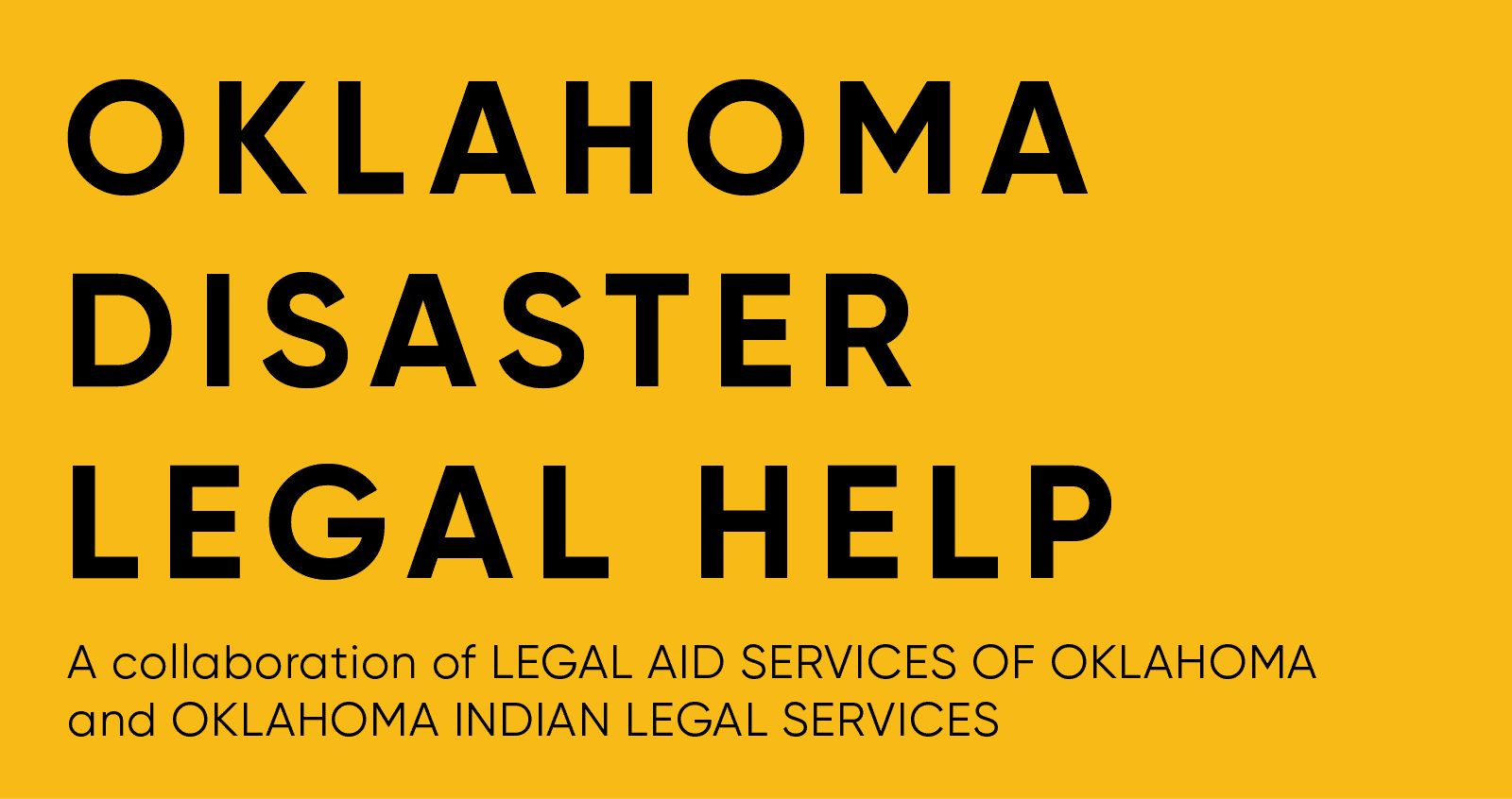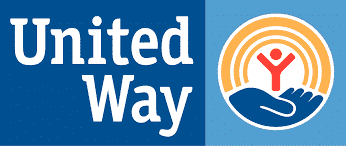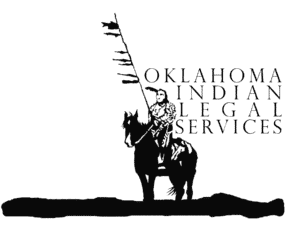Insurance
There are many insurance issues that can arise after a disaster and the answers will depend on the type of disaster that occurred and the type of coverage that the disaster survivor has.
What insurance is and where to start after a disaster
Insurance is a contract between you and your insurance company. The benefits that you have will depend on your insurance policy and the limits of your coverage. The Insurance Declarations page is generally the first place to start. It will show the type of policy, the policy limits, the deductibles, and any additional policy riders.
Report damage to your insurance company immediately and know that you can appeal their decision if you disagree
After a disaster, it is important that you (as a homeowner or renter) report the damage to your insurance company as soon as possible. An insurance adjuster will be sent to inspect the damage. The insurance company will generally pay for reasonable costs to repair or replace the covered damage up to the policy limits. If you do not agree with the insurance company’s decision, you can appeal within the insurance company, file a complaint with the Oklahoma Insurance Department, or file a lawsuit against the insurance company.
Flood damage is not usually covered by homeowners’ insurance
It is very important to note that traditional homeowners and renters insurance policies specifically exclude coverage for flood-related damages. Flood-related damage is covered by specific flood insurance policies.
To learn more about flood insurance visit: Every Home Is At Some Risk of Flooding. – Heartland Flood Help : Heartland Flood Help
Common Insurance Issues After a Disaster
Can I obtain immediate financial assistance from my homeowners insurance company to pay for additional living expenses while I am displaced from my damaged or destroyed property?
Under your homeowner’s insurance policy, you may be entitled to additional living expenses. It is important that you ask your insurance company about these benefits. After the disaster ask your insurance company for a copy of the policy so that you can confirm what things are covered. Cash advances are not required of any company, although most companies do provide cash advances to their customers when necessary.
Do I have to continue paying my insurance premium even after the disaster?
Generally, you must continue to pay your policy premiums, but there are circumstances under which some companies will grant extensions on payment deadlines.
What is covered under the typical homeowner’s policy?
The following things are generally covered by someone’s homeowner’s policy: the dwelling and any other structures on the property, personal property, additional living expenses, and comprehensive personal liability protection. Other miscellaneous associated coverages may also be included. It is important that the insured is familiar with his/her policy.
What do I do to preserve my claims and protect my right to get paid under my policy?
It is very important that you call your insurance company, agent, or broker as soon as possible after a disaster and report your loss.
It is a good idea to write down the date and names of anyone you speak to. Write down all claim numbers (your vehicles will be a separate claim from your home/personal property). Provide your insurance company with your updated contact information, and check your phone and messages regularly, returning all missed calls in a timely fashion. Document all damages as thoroughly as possible, including taking several photos and documenting when and where the damage happened. Make sure you include as many details as possible. Also, avoid disposing of any items until the insurance company has examined them. Doing so could jeopardize the settlement you receive. Keep in mind that the adjuster may want to see them when he first comes out to inspect your property; however, unless he has specifically examined the damaged items and told you what to do, you should not dispose of them.
I have a renter’s insurance policy. What does that do for me?
If you have a renter’s insurance policy that you think may cover your damage, call your agent, insurance company, or broker as soon as possible to report your loss.
Are there any special insurance considerations for condominium owners?
Condominium owners should check for coverage for damage under both the association policy and your individual coverage under your homeowner’s insurance policy.
What is “proof of loss?”
Upon receipt of the notice of loss, the insurer should advise you as to what is necessary to constitute proof of loss. Your policy may specify a timeframe in which the proof of loss must be submitted back to the insurance company. This can vary from 6 months to 3 years. Be sure to read your policy or check with your agent or company to find what your specific policy provides.
Be sure to document all damage. Take detailed photos of all the damage. If you must remove or replace any property for mitigation purposes, take photos before and after you make any changes to the damage. Keep all receipts of anything you buy to mitigate damages. Avoid disposing of any items until your insurance adjuster has had a chance to look at it.
What are my duties as the insured?
An insured person has the burden of establishing any loss resulting from a peril they are insured against. Most policies include the duty to mitigate damage. This means that as the insured, you have the duty of preventing further damage to your property after it has been affected by a covered loss. For example, covering broken windows after a hailstorm to avoid further water damage. For more information, or a more detailed explanation of your duties as the insured, consult your insurance company, agent, or broker. Your policy will also outline your duties after a loss.
What do I need to do to get an insurance adjuster to my house to look at my damage?
When you first contact your insurance company, request that they send an adjuster to look at your property. If you are having problems getting an insurance adjuster to your home, contact your insurance company. Always try to resolve problems with your insurance company directly.
Someone claiming to be from my insurance company, or the Oklahoma Insurance Department has asked me to pay them money to expedite my claim. Is this legitimate?
No. Victims should be aware of anyone who claims that they are working on behalf of the government, the Oklahoma Insurance Department, or your insurance company and asks for money to help expedite your claim. Ask this person for their name and credentials and immediately report them to your insurance company or contact the Oklahoma Insurance Department. All people claiming to work for your insurance company should have a photo ID that identifies them as an employee of your insurance company.
Is there anything that I should do to prepare for the insurance adjuster to come look at my property?
Try to make a list of all the damaged and destroyed property. Take pictures, collect names, addresses, and phone numbers of witnesses, obtain repair estimates, keep a record of expenses, such as alternative housing, etc., and locate bills and receipts for lost items if possible. Make a list of when and where you purchased things, as well as brand names, and model numbers. Be sure to mitigate damages to avoid further damage to your property. If your property is wet, attempt to get it dry to avoid mold damage. Document all damages with detailed photos before and after you complete any mitigating repairs.
I have been approached by a “public adjuster.” What is this?
A public adjuster is an individual who, for a fee, represents homeowners in claims negotiations with their insurance companies. Public adjusters may offer to help customers get more money for their insurance claims. Their fee is usually a percentage of the claim’s payment.
You should always try to work directly with your insurance company to resolve a claim. If you cannot come to an agreement or have difficulty resolving your claim, you may consider hiring a public adjuster. However, you should be aware that you will have to pay a fee.
How much can I be reimbursed for the repairs by my insurance company?
Most insurance companies will only pay for the reasonable cost of repair. If prices quoted for repairs appear inflated, get another estimate, and obtain your insurance company’s agreement before undertaking repairs. Be cautious if a contractor asks you to sign a document before giving you an estimate. The document may be a contract authorizing the contractor to do the work or an assignment of benefits form authorizing the contractor to obtain payment from your insurer.
Remember that your claim will only be approved to the extent that it does not exceed your policy limit. If you undertake repairs at an inflated price, you may reach your maximum policy limit very quickly.
What is the difference between Replacement Cost and Actual Cash Value?
Replacement Cost provides you with the dollar amount needed to go out and replace the damaged item with one of similar kind and quality without deducting for depreciation (the decrease in value due to age, obsolescence, wear, and tear, etc.). An insurer will generally not pay full replacement cost until a repair is completed or the item replaced.
You will be allowed a limited time to complete repairs or replace property. Consult your policy or ask the adjuster how long you have. In some instances, companies will grant an extension.
Actual cash value policies pay you the amount needed to replace the item minus depreciation.
I need money now and cannot wait for an adjuster to look at the property. What should I do?
Some policies provide for reimbursement for temporary housing and relocation costs while your home is being repaired, and for car rental costs while your car is being repaired or replaced. It is also important that you try to mitigate damage as much as possible. Boarding up windows, tarping roofs, and other quick repairs to make the structure as secure and weatherproof as possible are very important. Clearing debris and moving property to secure areas are important to do. However, you should always check with the insurance company before taking any such actions. Also, avoid disposing of any items until the insurance company has examined them. Take photos of everything along the way to document the process.
Will making emergency repairs on my own, or hiring someone to do so, negatively affect my insurance payout?
No. Most homeowner’s policies cover materials and reasonable labor expenses for temporary and emergency repairs. If possible, try to get several estimates. When you make your initial call to the insurance company, ask the representative whether the company will reimburse you for the work you do yourself. It is important to remember to keep all receipts.
Are there any circumstances where I should just sign my insurance proceeds over to a contractor?
No! If you have extensive repair work to be done, the contractor may ask for periodic payments as the work progresses, but reputable contractors rarely ask for full payment in advance. Make sure you review the contract you sign with the contractor. Ensure that there are clear terms and that it calls for payment upon completion. If you have a mortgage on your home, it is imperative you also talk with your lender as they may have specific requirements as to how any insurance funds are distributed and paid out.
My insurance company has offered to settle my claim and I’m not sure if it is a fair settlement amount. Who should I consult with?
It is recommended that an attorney should review all documents before signing any releases or waivers and before cashing in any checks from the insurance company which might be deemed the full and final payment of your claim. It is important that you have taken steps to be fully aware of the full extent of your damage and the full value of your claim before you attempt to settle with the insurance company. In some cases, you may have to get estimates or physically get the work completed before you can agree to a specific figure with the insurance company.
My insurance company has offered me significantly less than I believe I am owed or has denied my claim altogether. What should I do?
Any denial or limitation of your claim by the insurance company should be given to you in writing. If you do not receive this in writing you should demand it requesting specific reasons. It is recommended that an attorney review these reasons. Ask for any documents or reports prepared by the insurance company that factored into their decision. Most policies require that you sue the insurance company within one year from the date of occurrence of the damage. However, be sure to check the specific statute of limitation. Also, when you and the company do not agree on the scope of the loss, most policies contain an Appraisal or Arbitration option that you may choose to invoke. Consult your policy to see which option is available to you and what your obligations are. You also have the option of filing a written complaint with the Oklahoma Insurance Department or consulting an attorney if you have more questions.
I don’t know if the damage to my home is covered under my insurance policy.
Homeowner’s insurance policies generally cover most storm-related disaster damage except for damage caused by flooding. You should check and see if you have a separate flood insurance policy. The federal government provides coverage for flooding under the National Flood Insurance Program.
My policy is not going to cover all the damage to my home and personal property, what can I do?
It is possible that you are eligible for assistance from FEMA. Check out the FEMA page which contains additional information and a video explaining what FEMA can do to help you.
Does the damage my car received in the disaster get covered under my auto insurance or my homeowner’s insurance?
It depends on your policy. Consult with your insurer to see what is covered under your existing comprehensive policy. Damage to your car will not be covered by your auto insurance if you only have liability coverage on it. Review your auto insurance coverages to see what is covered for your vehicles.
I have my insurance settlement, but it is going to be six months before I can move back into my home. Where can I live in the meantime?
Additional Living Expense coverage will pay you for the costs you incur more than your normal living expenses. It is important that you find out from your insurance company if there are any restrictions on how long you can stay or how much you are allowed for hotel room, etc. Other costs such as higher utility bills, and the cost of storage of your personal belongings may be covered.
What should a bid for repairs include?
If possible, get bids from reliable, licensed contractors. Ask around, get references, and check with local organizations to see if they are reputable. The bids they give you should include details of the materials to be used and prices on a line-by-line basis. The bid should include the amount of material to be used, the price for the materials, as well as the estimated time it will take and pricing for labor. This increases the speed and simplicity of adjusting the claim.
What about fallen trees? Does insurance pay to remove them?
The general rule is that the tree must cause damage to your home or property before the insurance company will pay for cleaning or removal. If it is physically on your house, the insurance company should pay for its removal.
What happens when a tree on adjacent property falls and causes damage?
Unless you can prove that your neighbor was negligent in some way, the neighbor’s policy covers his/her house and your policy covers your house, irrespective of where the fallen tree originated from. The general rule is that a person is not liable for injuries or damage caused by a disaster or an “Act of God” where there is no fault or negligence.
What happens when someone else’s property ends up on my property?
When personal property is carried away by wind or flooding and comes to rest on the land of another, it remains the property of the original owner and the original owner may enter and retrieve it. If the landowner refuses to let the original owner of the property enter or appropriate the property for the landowner’s use, the original owner of the property will have an action against the landowner. On the other hand, the landowner has no obligation to preserve the property and may move the property if necessary to use the land, provided such action is taken in a reasonable manner.
My business owns vehicles which were damaged in the disaster. Which of my insurance policies covers them?
This depends on the type of insurance coverage you have, and what caused the loss. Check with your insurance company to see what policies you have and what they cover.
My business was damaged in the disaster. Does my commercial property policy cover the damage to the building and its contents?
Commercial property policies generally pay for direct physical loss or damage to the covered property resulting from a covered loss. Such properties often include exclusions. It is important for you to be aware of what those are.
Does my business commercial property policy entitle me to replacement costs?
Policies typically pay cash value, which takes into consideration the depreciation of the property. However, endorsements may be available which will provide coverage on a replacement cost basis.
My business cannot operate because of the disaster. Will my insurance cover my lost business?
Business Interruption Insurance may entitle you to recover the net profits and fixed expenses you fail to earn because of the interruption of your business resulting from a disaster. The insured has the burden of establishing the business income loss incurred.







